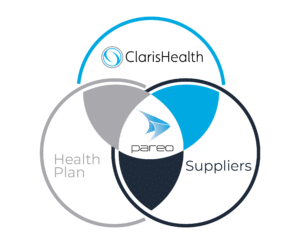What makes value-based care programs work? 3 keys to success
Following up on our previous article, we look more closely at what successful value-based care initiatives have in common.
It’s not all that surprising that one of our recent blog posts, Medicare for All: Should it be feared by health plans? has quickly become one of our most popular. Value-based care programs, like what the federal government has switched to, are at the forefront of discussions regarding the future of healthcare. And a recent survey indicates that providers are actually willing to take on more risk under alternative payment models, which signals well for value-based care adoption.
But it takes awhile to implement value-based care programs and that may leave many health plans wondering what they can do to be proactive. Here are 3 strategic initiatives your health plan can pursue today to ensure value-based care programs will be successful on down the road.
1. Communication
We’ve talked a lot lately on the blog about communication and collaboration and with good reason: the future of healthcare demands it. As care models shift, the need to work effectively with other vested parties is paramount.
Take for example a recent panel in which industry experts (18 in all) were asked to define the term “value-based care.” While the term “value-based payment” was broadly agreed on, experts could not come to a consensus on the meaning of value-based care reports FierceHealthcare. “In addition to these specific gaps in communication, the study highlighted just how valuable it can be for industry leaders to convene with others who may not share the same perspective,” says Meredith Williams, M.D.
Health plans can prepare for value-based care by fostering better communication with internal and external stakeholders. As Williams points out above, sitting down with other experts in the industry to get on the same page is a powerful — and unprecedented — move.
2. Transparency
Alongside value-based care runs another initiative: transparency. Real-time access to crucial medical details, patient access to data, and upfront pricing are goals associated with successful value-based care programs.
True transparency is only possible when health organizations have a firm grasp on data. Yet interoperability remains a struggle: 74% of respondents in this survey list the “ability to aggregate and share information as an extremely important need over the next three years.” By 2020, 59% of healthcare payments will be from value-based care models, and that means health plans need to work now on integrative data strategies.
A shift towards transparent practices can directly affect your health plan’s relationship with providers. The ability to collaborate with elements of the healthcare trifecta (patient, provider and payer) will grow increasingly important for health plans seeking to thrive in a value-based care environment. “If value-based care is about aligning what works best for the patient to a hospital’s financial incentives, then insurers and providers must work together to create the best outcomes,” writes Healthcare Finance.
3. Technology
With communication and transparency as actionable goals for health plans seeking to prepare for value-based care, technology is a third and crucial piece of the puzzle. With the right technology solution, health plans can improve communication and engagement with key stakeholders while promoting more transparent data practices. “Data is much easier to connect with when you are able to see it in real-time,” notes Jason Medlin, ClarisHealth VP of Marketing & Business Development.
Investing in IT and technology to foster innovation was a featured conclusion of the Deloitte report “The Health Plan of Tomorrow.” Switching from volume to value in healthcare models will require a sophisticated technology strategy. The goals of value-based care programs — largely focused on access to patient care data — are not currently achievable at many health plans.
The fastest way to transform? Technology, says Healthcare Finance. A comprehensive payment integrity solution should also provide a way of interpreting big data to transfer into actionable insights. “Once an organization has its data and is able to analyze it, it can then pinpoint opportunities for changing the practice to improve efficiencies without compromising quality outcomes — and for improving patient care overall.”
The Healthcare Trifecta Matters More Than Ever

Now’s the time for total payment integrity
See the ClarisHealth 360-degree solution for total payment integrity in action.

